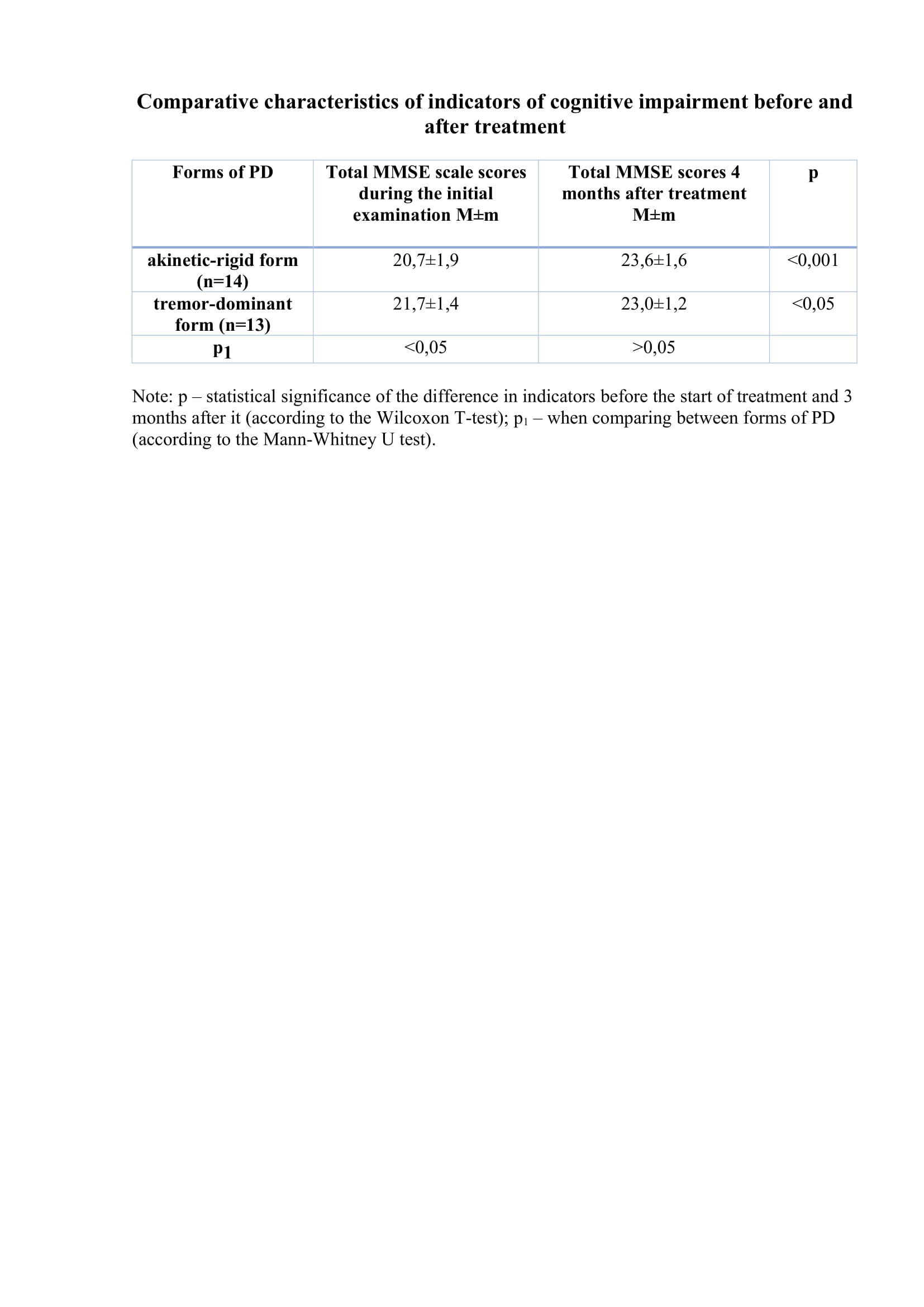Category: Parkinson's Disease: Cognitive functions
Objective: To study cognitive impairment in patients with Parkinson’s disease (PD) with akinetic-rigid and tremor-dominant forms.
Background: Cognitive impairment is a common and debilitating feature of Parkinson’s disease (PD), affecting up to 80% of patients during the illness. These cognitive deficits contribute significantly to the overall disability and reduced quality of life experienced by individuals with PD.Cognitive impairment is a common and debilitating feature of Parkinson’s disease (PD), affecting up to 80% of patients during the illness. These cognitive deficits contribute significantly to the overall disability and reduced quality of life experienced by individuals with PD.
Method: From October 2023 to January 2024, 27 patients with akinetic-rigid (n=14; 51.9%) and tremor-dominant (n=13; 48.1%) forms of PD were examined and surveyed.
Inclusion criteria for patients in this study were: established diagnosis of “Parkinson’s disease”; age between 40 and 85 years; ability of the patient to move independently or with the support of others; voluntary consent of the patient to participate in the study. Normality tests were conducted using Kolmogorov-Smirnov and Shapiro-Wilk tests. Differences were considered statistically significant at p<0.05.
Results: At the admission, cognitive impairment were more significant in patients with the akinetic-rigid form of Parkinson’s disease – 20.7 ± 1.9, compared to the tremor-dominant form – 21.7 ± 1.4 (p<0.05). Four months after the start of the therapy, improvement in cognitive dysfunction scores in patients with akinetic-rigid form of Parkinson’s disease was more significant (23.6 ± 1.6) than in the tremor-dominant form (23.0 ± 1.2). This coincides with data from other authors, who indicate akinetic-rigid as the most common form. It should be emphasized that, in addition to anti-parkinsonian therapy, we also used nootropic agents, which were individually selected and not used in all cases.
Conclusion: Using the MMSE scale helps to detect and determine the severity of cognitive changes in a timely manner and the risk of further development of dementia in patients with PD, that allows to start corrective activities in time. Timely detection and appropriate approach to the treatment of the underlying disease and the correction of cognitive disorders significantly improves the quality of life of patients themselves, contributes reducing economic costs.
Table 1
To cite this abstract in AMA style:
M. Mirqosimova. Cognitive status in patients with akinetic-rigid and tremor-dominant forms of Parkinson’s disease in Tajikistan. [abstract]. Mov Disord. 2024; 39 (suppl 1). https://www.mdsabstracts.org/abstract/cognitive-status-in-patients-with-akinetic-rigid-and-tremor-dominant-forms-of-parkinsons-disease-in-tajikistan/. Accessed July 18, 2025.« Back to 2024 International Congress
MDS Abstracts - https://www.mdsabstracts.org/abstract/cognitive-status-in-patients-with-akinetic-rigid-and-tremor-dominant-forms-of-parkinsons-disease-in-tajikistan/

